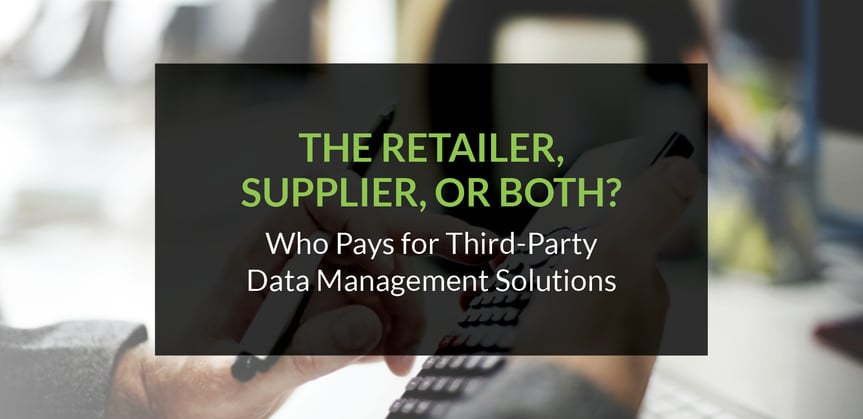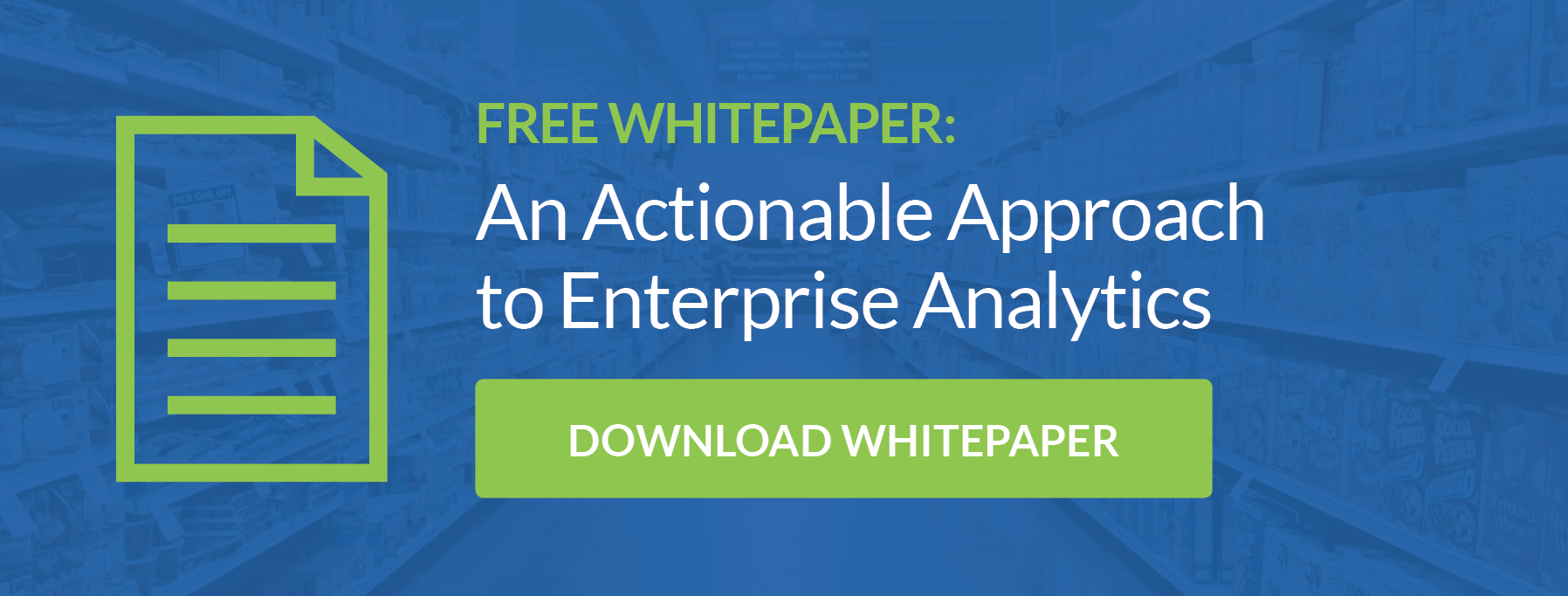Advancing technologies have empowered both retailers and suppliers with greater access to data and in near real-time. Often, these trading partners choose a third-party data management solution to ensure they are able to collect, analyze and share this data in the most efficient means possible. The most effective way to improve business processes, and the bottom line, is to choose a solution that allows for greater collaboration between trading partners. But, because such analytics solutions benefit both retailers and suppliers and their ability to understand their business, the question inevitably becomes - who should pay for this solution?

Data management solutions can have a positive impact in every area of business, but retailers and suppliers are often most concerned with cost and ROI - especially when managing to their budgets. Additionally, businesses rarely know where to place the responsibility of who pays for such third-party data management solutions. Should the retailer make this initial investment? The supplier? When is it a shared cost? Read on to understand the factors that should influence this decision.
The Retailer
Many retailers choose to fund third-party data management because it allows for complete control over the sharing of data to outside partners such as suppliers, distributors and brokers. In addition, this approach allows retailers to customize the analytics portal itself to meet internal business objectives.
For example, if a retailer's goal was to improve vendor accountability with regard to order fulfillment rates, the next logical step would be to establish key performance indicators (KPI's) that would be built into the portal. All vendor orders and actual deliveries would then be tracked to those KPI's and a ranking of the vendors could be compiled and updated as corrective measures were taken to address under performers.
For obvious reasons, some suppliers may not want to fund a data management solution designed to benefit the retailer primarily. But, in addition, retailers who choose to fund data management also avoid any negative impacts to product gross margins or trade spending that typically occurs when suppliers are still expected to absorb all or even some of the costs associated with such solutions.
The Supplier
Suppliers will typically fund data management on behalf of their retailers when they can generate a clear return on their investment. This includes expanded visibility to real-time point-of-sale (POS) data, advanced inventory management tools that provide actionable insights to improve in-stock positions at store level, and advanced retail analytics that can aggregate large data sets into easily digestible dashboards, scorecards, and reporting that rivals their own internal analytics capabilities.

These types of benefits can improve their collaboration with the retailer, enhance their access to key supply chain data, and improve their sales performance with better insight into the effects of pricing, promotion, and loyalty programs on their business.
A key consideration for a supplier in their decision to support fully-funding a data management solution is the overlap with current internal data tools and analytics. A main concern would be avoiding duplicate work having to manage or utilize more than one source of data and analytics. Ensuring that the solution is a value-add for both the supplier and retailer helps to overcome this challenge.
Another concern is the ability for the third-party solution to integrate with the supplier's own internal systems and data management processes. Choosing a solution that can be customized to meet the needs of both the retailer and supplier is essential to driving adoption rates, while adding real benefits to the everyday management of the business for analysts and executives alike.
Shared Cost
Perhaps the most progressive approach to funding a third-party data management solution is an arrangement where the retailer and suppliers share in the cost of the solution. In this type of approach, both trading partners recognize the value of better, more consistent data sharing, and the ability to collaborate more effectively using advanced retail analytics that are standardized.
This model also ensures that both trading partners are engaged in the launch and ongoing development of the data management capabilities, and that both sides are committed to improving their mutual business. It is important to select a data management solution that is not a cookie-cutter platform designed for retailers or suppliers. It must be all-inclusive and able to be customized as each party has unique business needs in addition to shared goals with their partners.
To conclude, third-party data management solutions will pay for themselves, as long as the right solution is deployed with the most appropriate funding model given established business goals.
iControl offers data management solutions which have many features including POS reporting, invoice processing, pricebook synchronization, and retail analytics. These features have saved companies thousands of dollars and hours of important time. Contact us to learn more!
